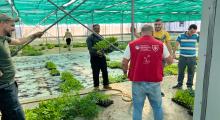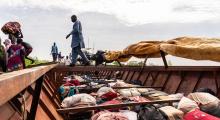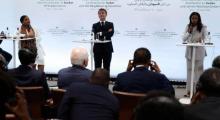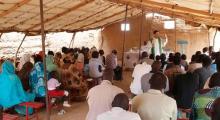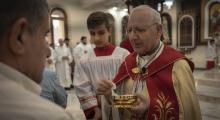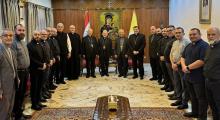Issued by the Catholic Center for Studies and Media - Jordan. Editor-in-chief Fr. Rif'at Bader - موقع أبونا abouna.org
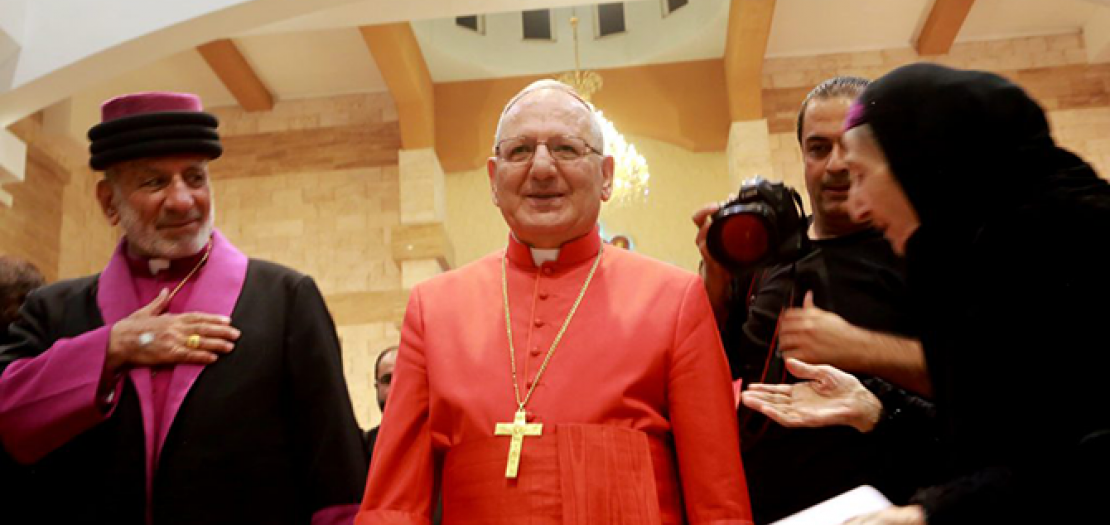
Several times during the past few years, Patriarch Louis Raphaël I Sako’s name has been circulated as one of those who may be selected to become cardinal.
Then on May 20, Pope Francis finally named Sako, the Baghdad-based Chaldean patriarch of Babylon, to the College of Cardinals, which will be responsible for electing his successor.
The 69-year-old Iraqi is one of the most prominent Eastern patriarchs.
He is a tireless advocate of dialogue, justice and citizenship in a country that has been at war for more than 15 years, devastated by the invasion of the United States and then by ISIS in the summer of 2014 — a country that is still eroded by ethnic and religious divisions.
On May 20, the day the Pope announced a new consistory, Sako published--in his capacity as the leader of the most important Catholic community in Iraq--a communiqué in response to the results of the country’ recent legislative elections.
Having conveyed his “warmest good wishes to [his] Muslim brothers in this holy month of Ramadan,” he congratulated those who were elected — mainly supporters of the Shiite leader Moqtada Sadr — and urged them to the constitution of a “civil, democratic and strong government that treats all people equally and that aims to ameliorate Iraq at all levels.”
The history of Sako, a gentle, soft spoken man, in itself reveals the painful stages of the Christian presence in Iraq. He was born on 4 July 1949 in Zahko, where his family had found refuge after the Armenian genocide of 1915. Following a conflict between Christians and Muslims, his parents and their seven children went to Mosul in the mid-1950s.
Inspired by the priest of the parish where he went every day with his father, Sako asked, at the age of 14, to enter the small seminary run by the Dominicans. In spite of his young age, he avidly followed the discussions of the Vatican II Council. He was ordained as a priest in Mosul in 1974, wanting to be a “working priest,” and was appointed to the city’s cathedral.
A polyglot — he speaks French and English as well as Arabic, Armenian and Soureth, an Armenian dialect — Sako studied in Rome at the Pontifical Institute for Arabic and Islamic Studies. Laureate of the Defensor Fidor (2008) and the Pax Christi (2010) Prizes, he became progressively more committed to ecumenism and interreligious dialogue.
In 2002, he was named Archbishop of Kirkuk, the archdiocese that is based in a town in the Kurdish and Arabic “disputed” territories. Here, he continually promoted meetings among Iraqis, insisting always on what united them, particularly at the cultural level, in order to encourage them to surmount their differences.
A supporter of liturgical reform and greater involvement of the laity, Sako made friends in a church that remains very clerical and attached to its age-old rites as well as its language. He was also elected as Patriarch of Babylon of the Chaldeans in 2013 by its bishops. At the age of 64, he succeeded Cardinal Emmanuel III Delly.
A year later, ISIS fighters swept through Sinjar, the territory of the Yazidis, and the Nineveh Plains, where most of the country’s Christian population lived. Christians had to flee from Mosul and Qaraqosh villages overnight, with no time to take anything with them.
Since then, with other Christian leaders, the Chaldean Patriarch has endeavored on every front — humanitarian, political and spiritual — to halt the disappearance of Christian churches in Iraq.
In appointing Louis Raphael I Sako as a cardinal, the pope is no doubt rewarding him for the courage and clear-sightedness with which he tirelessly serves his country and his church.


